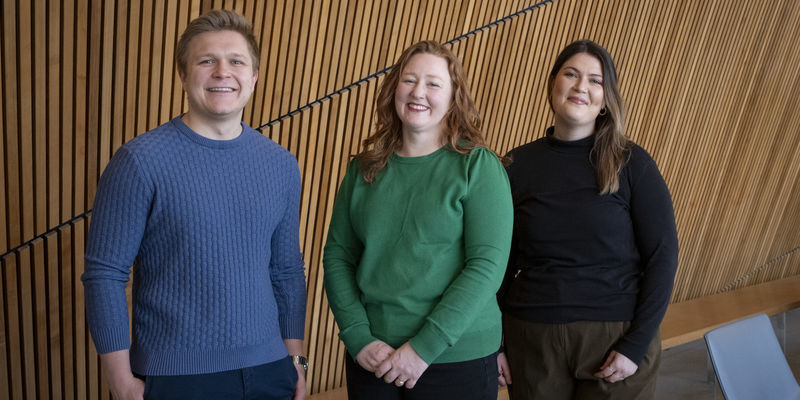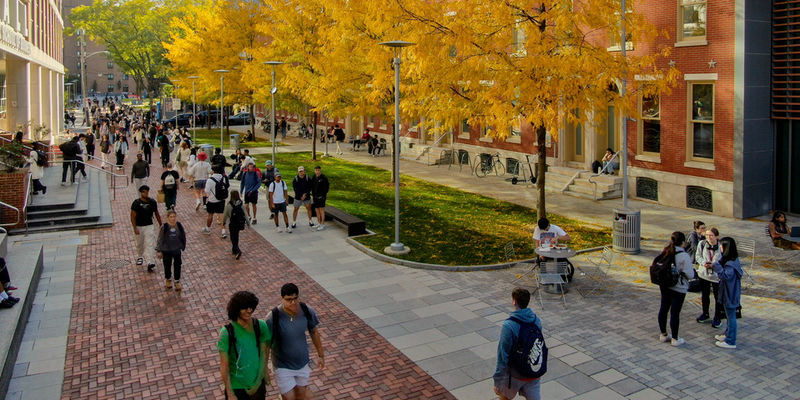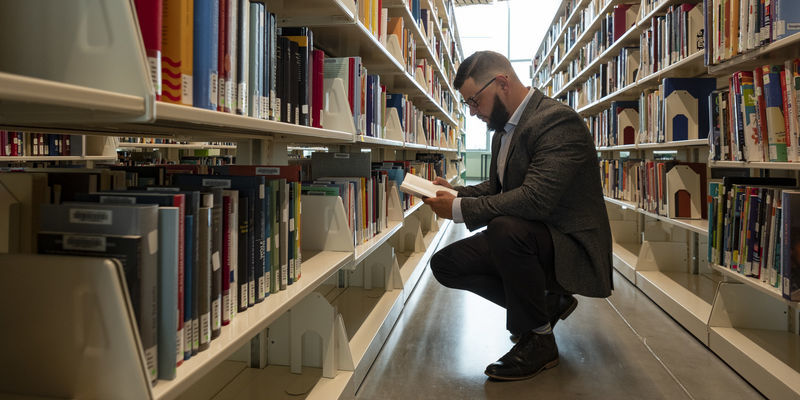Temple University Center City campus celebrates 50 years
Opened in 1973, TUCC has been serving learners of all ages through credit classes, noncredit classes and educational enrichment programs for a half-century.
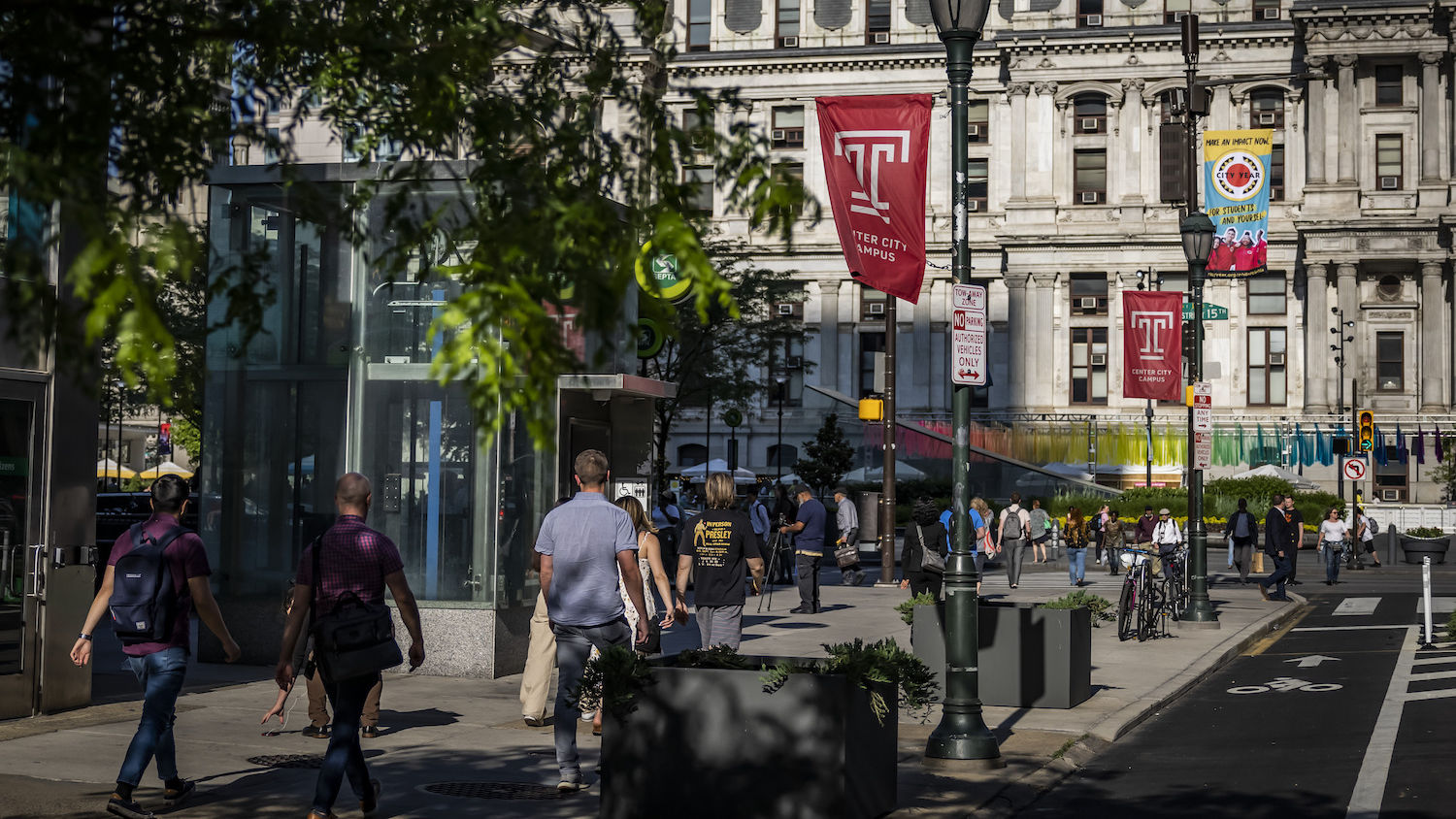
The learners who come through the doors of Temple University Center City, also known as TUCC, on any given day might be a working mother completing her MBA degree, an older adult taking noncredit classes about Buddhist philosophy, a 22-year-old getting their real estate license or a child nurturing their talent by taking piano lessons.
This is TUCC, where people of all ages and stages in life are welcomed to advance their careers, make a career pivot, or simply enrich their lives through learning and community.
“In the spirit of Russell Conwell, who believed everybody should have access to the best education possible, TUCC offers programs for everyone, from children and mature students to working professionals and lifelong learners. It’s our privilege to serve Temple students and the wider community in the heart of Philadelphia and I’m so proud of the work the Center City team does every day,” said Vicki Lewis McGarvey, vice provost for University College.
While Temple’s Main Campus on North Broad Street offers almost entirely credit classes intended primarily for those pursuing traditional four-year degrees and graduate programs, TUCC serves as an alternative, a place where people of all ages can take credit or noncredit classes. “Through the use of alternative formats such as evening, weekend and hybrid online classes we have been able to serve an adult population that typically would not go to Main Campus,” said Bill Parshall, TUCC’s director from 2001 to 2021. “TUCC has also served as an incubator for new credit and continuing education programs including the master of public policy, the master of liberal arts and the Osher Lifelong Learning Institute,” he said.
As TUCC celebrates its 50th anniversary, its students, staff and community across Philadelphia look back on the role that the campus has played in the development of learners throughout the city.
TUCC was born from a simple idea: that adults who lived and worked in Center City would be interested in enrolling at Temple to continue their education. Since the university believed that the distance between Center City and Main Campus was a deterrent to working center city professionals, they began renting space for classes in Center City. In 1973, Westinghouse Broadcasting Corporation donated to Temple a seven-story building at 1619 Walnut St., formerly used as the studios for KYW Newsradio and KYW-TV. Noncredit classes began later that year and credit classes began in the spring of 1974.
By 1976, TUCC had expanded into another building across the street at 1616 Walnut St. and had integrated itself into the fabric of Center City life, offering not only classes but also space and events devoted to the arts. Tyler School of Art and Architecture’s main gallery occupied a street-level space in the 1619 Walnut St. building, featuring rotating exhibits from prominent artists and a visiting artists lecture series funded by the National Endowment for the Arts. Since the 1619 Walnut St. building had formerly been used as a television studio, it lent itself well to classes in media, including noncredit classes in sitcom writing and appearing on television, and for-credit classes in Temple’s Klein College of Media and Communication.
Students look at a window display at one of the early TUCC buildings. (Photo courtesy of Temple Digital Collections)
By 1982, TUCC’s enrollment had reached 10,000 credit and noncredit students, and it is estimated that nearly 1 out of every 4 Center City residents took a course on campus that year. In 1995, TUCC sold the 1619 Walnut St. location and operated solely out of the 1616 Walnut St. building, which resulted in a shift away from the arts and more toward professional development classes. In 2001, TUCC moved to its current location at 1515 Market St., a site that has offered more technological opportunity and greater proximity to the city’s economic core and public transportation.
Noncredit classes have been one of the key ways that TUCC has served adults in Center City since its genesis. TUCC provides professional development workshops and courses, and it partners with Temple’s Harrisburg and Ambler campuses and community colleges throughout the region to offer professional certificate programs. TUCC is also home to the Real Estate Institute (REI), which offers noncredit classes for people taking the Pennsylvania real estate exam, as well as brokers, appraisers and property managers interested in furthering their careers. Timothy Galbraith, the REI’s assistant director, feels the institute’s greatest strengths are that it welcomes everyone, from recent high school graduates to retirees, and can help them jump start or advance a career in real estate. “It’s a great option for a career or a career change for people who don’t plan on going to college, or who have already been to college,” he said.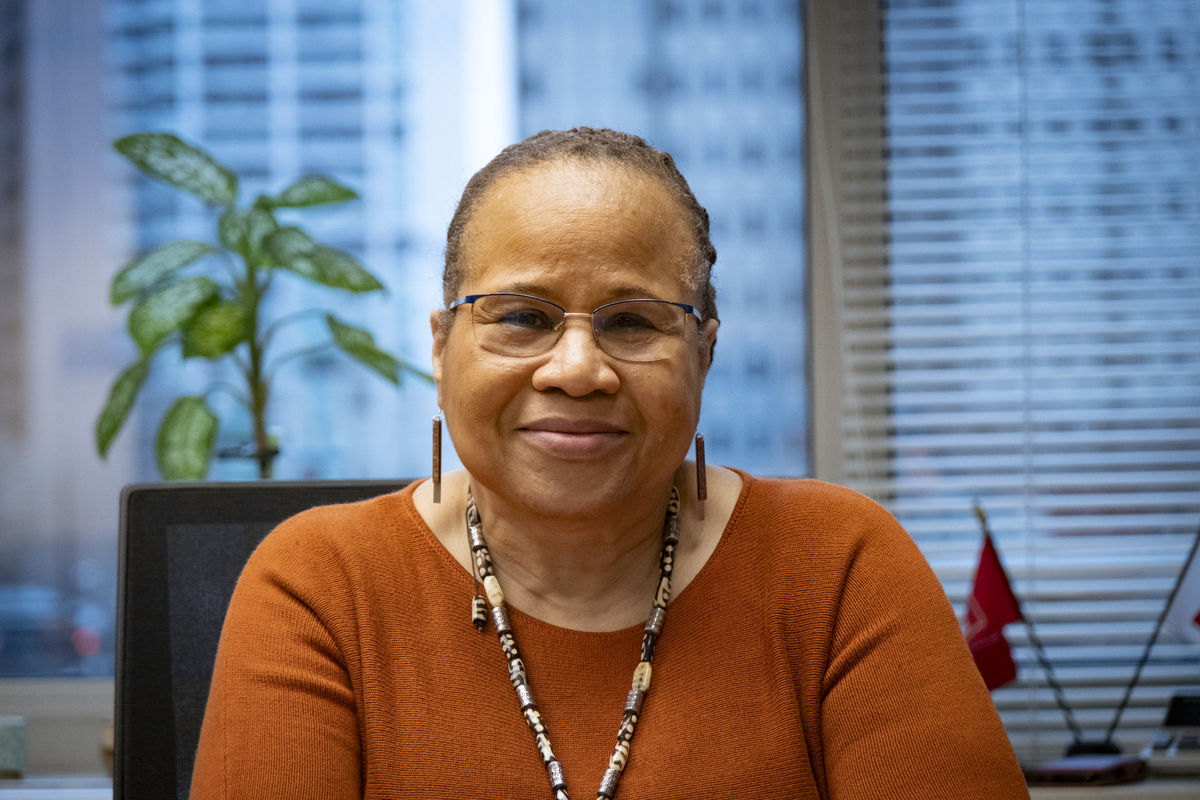
TUCC director Melanie Ellison-Roach at her desk. (Photo by Joseph V. Labolito)
TUCC stands as a pillar of the Center City community by offering personal enrichment opportunities for people of all ages. The Osher Lifelong Learning Institute offers noncredit classes to adults over the age of 50 on topics such as liberal arts, science, foreign languages and pop culture, as well as recreational opportunities. Noncredit music classes for children and adults are also available through TUCC, and TUCC hosts the ensembles of the Center for Gifted Young Musicians, which offers high-level performance opportunities for talented young instrumentalists.
The Pennsylvania Innocence Project’s offices are housed in TUCC, and while the nonprofit organization does not offer classes, it is an important member of the campus’ community. Sponsored by Temple’s Beasley School of Law, the Pennsylvania Innocence Project is a nonprofit organization that works with every law school in Pennsylvania to litigate cases for the wrongfully convicted, improve the criminal justice system to prevent convictions of innocent people and provide reentry services to exonerees.
TUCC also serves the population of Center City by offering credit classes in the evening for both undergraduate and graduate programs. Undergraduate degrees include the bachelor of liberal studies and, since the fall of 2021, the bachelor of general studies, intended specifically for transfer students and students who had previously started but not completed a bachelor’s degree. Master of liberal arts and master of public policy degrees are also offered at TUCC, as well as doctorate degrees in music therapy, educational leadership and occupational therapy.
Temple’s Fox School of Business also offers nighttime classes for both its part-time and full-time MBA programs at TUCC, and students can complete Fox’s MS in business analytics or MS in innovation management and entrepreneurship at the location. Students in other Fox master’s programs have the option of taking electives at TUCC. Fox has had a strong relationship with TUCC since the campus’ inception, and now has the largest credit presence there.
The campus’ central location near public transit and regional rail makes it convenient for people who are taking night classes after their work day. “TUCC’s location is easily accessible for both city and suburban students. Located directly above Suburban Station, those students who aren’t living or working in Center City can take public transportation right to campus and students who are already in the city can go right to class,” said Valerie Henry, executive director of graduate programs for Fox.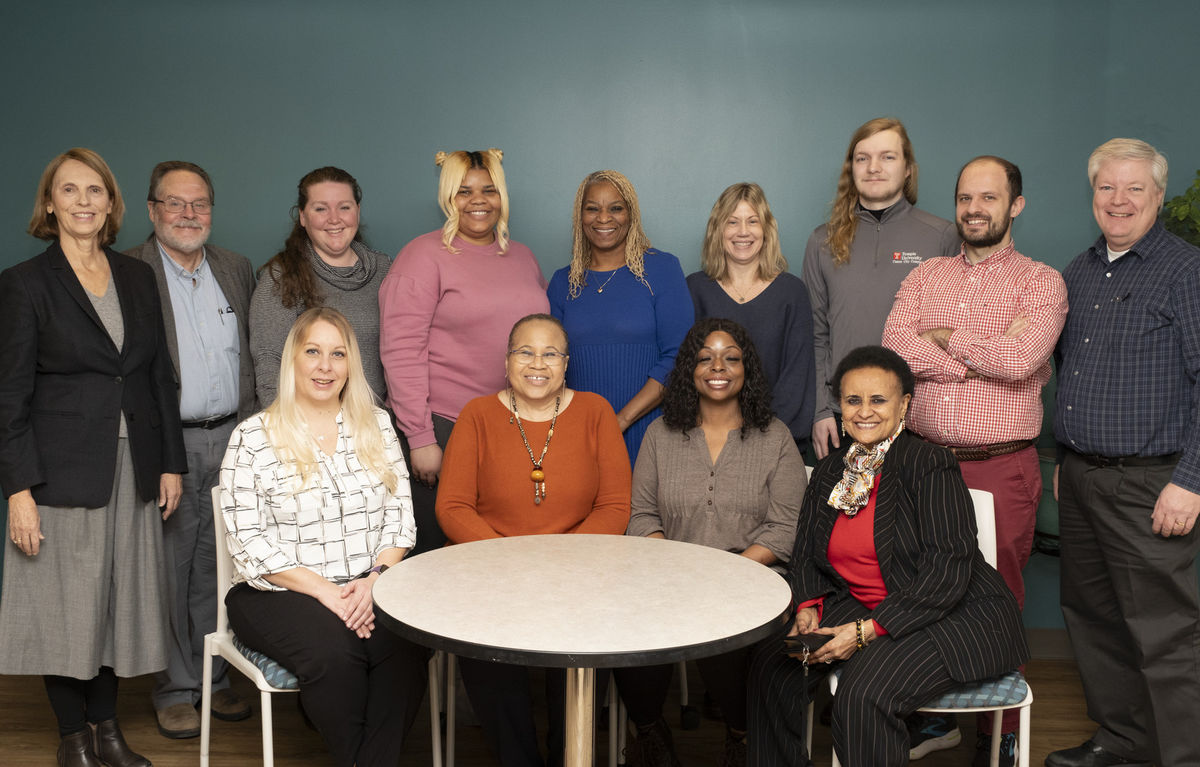
TUCC's devoted staff. (Photo by Joseph V. Labolito)
The force behind TUCC’s lasting success over its 50 years has been its devoted staff members, many of whom have been employed by TUCC for decades. Stacey Eleby, who has been employed at TUCC since 1983, first as a student worker and now as the meeting and training space manager, says, “TUCC is my second home. My colleagues are like my family members. We’ve worked together for years. So it definitely means a lot and it will always hold a special place in my heart.”
Melanie Ellison-Roach, current director of TUCC, says, “I’m really proud of the resilience of the staff here. I’m proud of the way that they've been able to continually accommodate a variety of programs and people. I’m proud of the fact that we have a team of people who have been here for a long time.”
When Russell Conwell envisioned Temple University in 1884, he intended for it to be a place where people of all backgrounds and means can benefit from educational opportunities. “The whole intent of Temple University was to offer courses to people in the evening, and over time the vision for TUCC has been to become a hub of education for a variety of populations,” said Ellison-Roach. TUCC can be seen as an embodiment of that vision as it looks back on 50 years of serving the city of Philadelphia and looks forward toward new ways of pioneering accessible education for all in the future.
